She was so small that her eyes barely poked over the podium. Everyone in attendance stared at her adoringly, like they were watching a puppy or a newborn baby.
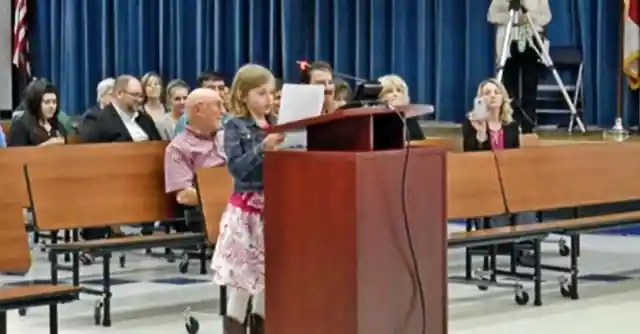
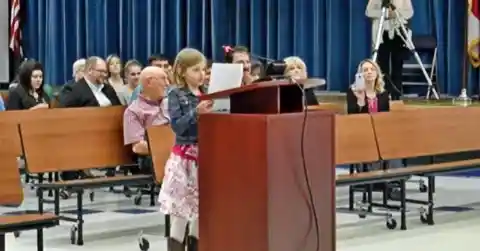
She wasn't intimidated by the older audience and when she opened her mouth and began her speech, everyone's jaws dropped open. She might have been a student, but she was about to school every single adult in the entire room.
Every parent out there is convinced that their child is special and sticks out from the rest. But Jennifer Smooth, a mom from Florida, was well aware that her daughter's unique nature separated her from every other child in her grade, even some adults too.


But one afternoon, when Sydney returned from school with tears pouring down her cheeks, he mothing knew something was off.
She instantly got up from her seat and made her way over to the small girl, "What's wrong, peanut?" She frowned down at her daughter. With tears still spilling from her eyes, her voice shook as she told her mother about her day. Her day started out normally, she played with her friends, went to class and had lunch.


But when it was time for her 4th grade class to take a test, she had said something that made her teacher angry, but that wasn't all.
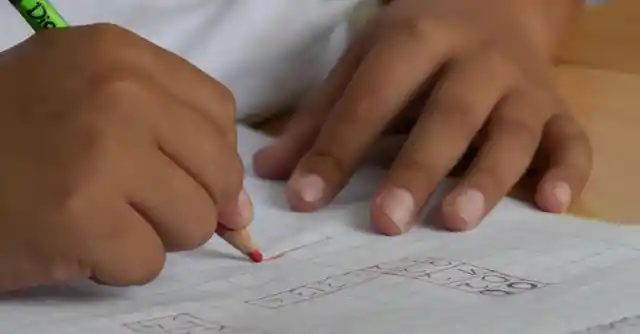
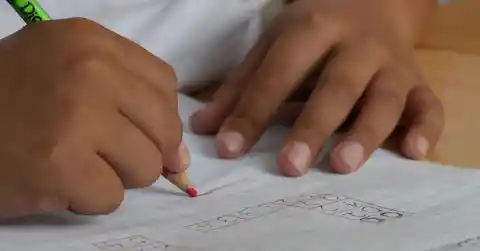
Despite Sydney only being nine-years-old, Jennifer felt like she was speaking to an adult as she explained everything that was wrong with common core and testing. But what Sydney had to say next was so surprising that Jennifer nearly choked on air.
She informed her mom that the kids had to sign a form that stated that none of the kids were allowed to talk to anyone else, including their parents, about the test. Sydney told her teacher that she wasn't going to sign the form, so her teacher told her to go to the principal's office.

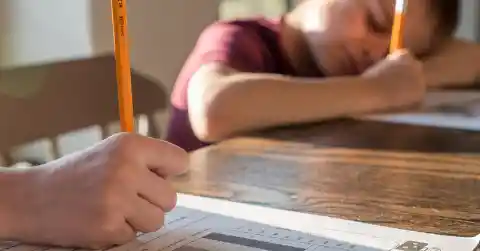
Sydney refused that too and spoke about how the education system was flawed, and that was when when she was told that she was suspended.
Jennifer listened carefully as her daughter explained everything. She tried to remain calm but she could feel her blood begin to boil. How could they make the children sign a secret form? And how dare they kick her daughter out?!


She clutched her phone in her hands and instantly called the school. She was placed on hold for 30 minutes, and that's when she knew that they were never going to answer the call. So she was left with only one thing to do.
Jennifer's hands shook with anger and she started doing her research online.


She figured out when the school's next board meeting would be and asked Sydney if she wanted the chance to speak during the meeting, too. The little girl nodded confidently and grabbed her notebook before she started scribbling down every single thought she had surround the situation.


Everyone must've though that Jennifer had written the speech for her daughter, but it was all Sydney's words and thoughts. The only help she got was from the thesaurus or forming a few lines into something suitable for a school board.Everything else was entirely and those board members were about to get an earful from the young girl.
On the day of the meeting, Jennifer was filled with stress and nerves, but Sydney was confident and even excited to deliver her speech. The second Sydney's name was called and she made her way to the podium, everyone started cooing at the little girl.
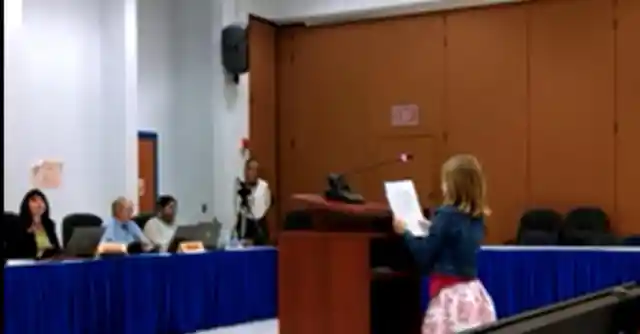
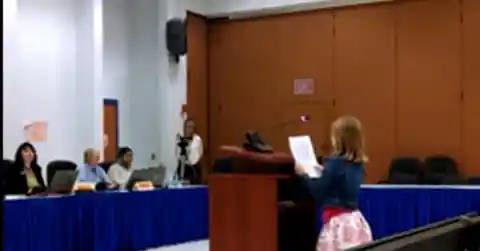
They thought she was cute and harmless, but they were in for a surprise.
Sydney cleared her throat and started speaking into the microphone as she said, “Hello fellow members of the school board. Today I will express my concerns over the FSA tests.” Everyone was smiling at her, underestimating the small girl. That was until she said, "This testing looks at me as a number.
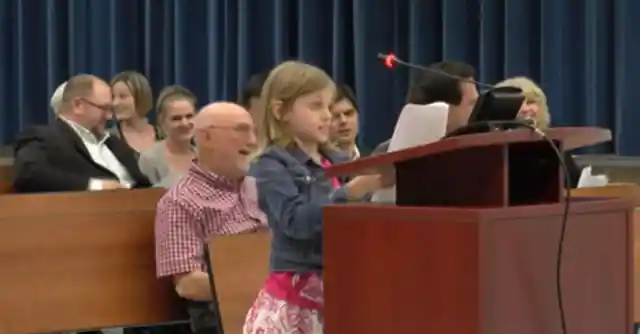
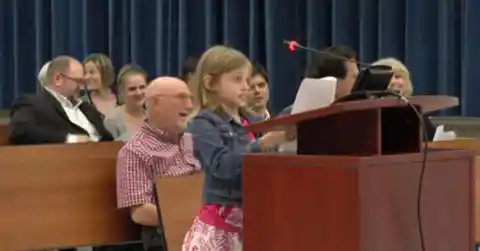
One test defines me either as a failure or a success through a numbered rubric.” The looks of adoration from the audience quickly changed to expressions of shock. But there was more.
Sydney went on to explain that she didn’t feel good about signing a form that forbids her from talking about it with her mother. The secretiveness wasn’t only wrong, but probably illegal. “I have the right to talk to my parents about any and everything related to school and my education.


”Finally, everyone was looking at her seriously – like a person with a legitimate grievance and not a child having a cute disagreement. The next point made the board members do a double take.
“Second, why am I being forced to take a test that hasn’t even been tested on students here in Florida?” You see, the company that was contracted to create the exam tested the rubric in Utah. Sydney proceeded to explain that the tests are creating a stressful, unhealthy environment for everyone. Why couldn’t they break the test down into three parts throughout the year?


By the time she was finished and took her seat, the entire room gave her a standing ovation. But Jennifer was next, and she had a bone to pick.
She took the podium and explained how it was this very thinking she had shared with her teacher on the day of the test … and that she had been kicked out because of that. Then there were the ignored phone calls and message when Jennifer tried to contact them.


By the look on everyone’s faces, she knew the point had been made clear. The ball was in their court, and they had better deliver.
It was less than 24 hours later when Jennifer got a phone call from the principal. The apology was laced with PR drivel but at least her little girl could go back to school.


She thought things would end there, but after only a couple days, she found out the video of Sydney’s speech had gone viral!
Jennifer and other parents were alarmed to learn that Sydney hadn’t been allowed to discuss the test with her mother and wanted to know why. Sydney had to sign a non-disclosure form that prohibeted her from discussing the test’s contents with anyone - including her own parents - before undertaking the reading section of the test.
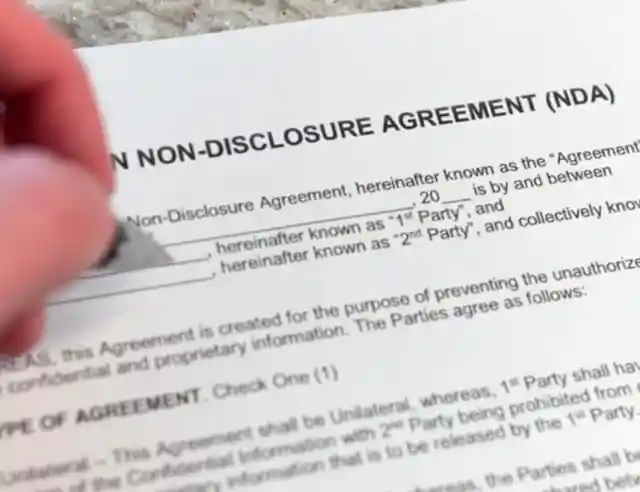
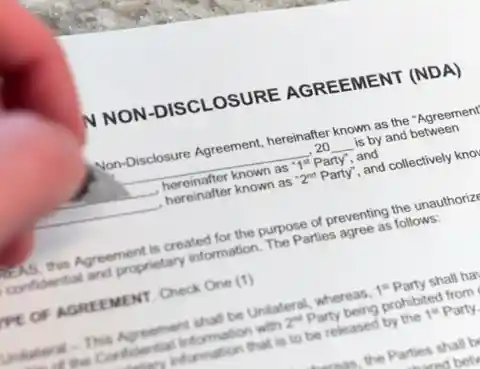
Naturally, everyone wanted to know what the school was playing at.
Sydney had felt like the non-disclosure form prevented her from discussing how anxious she was after the test with her mother. "My daughter talks to me about everything," said Jennifer.


"She was very upset." The school, however, insisted that the non-disclosure agreement was not to prevent children from talking to their parents about the test, but rather to prevent them from sharing its contents with students who hadn’t taken the test yet.
“It's not meant to keep kids from talking to their parents, just from sharing specific questions,” District spokesman Eric Williams explained. He said that the non-disclosure form had been implemented years ago to prevent students from discussing the test.
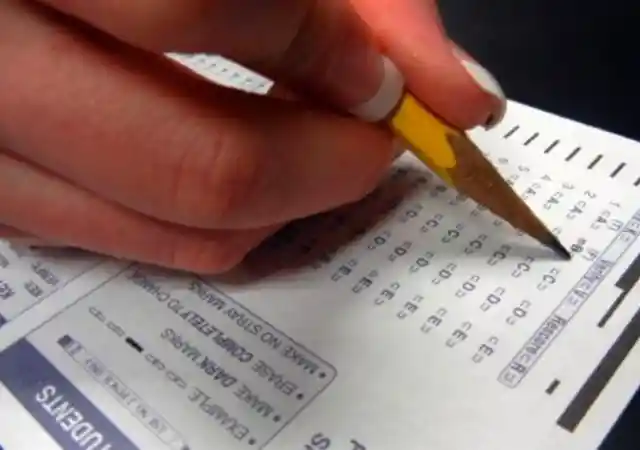
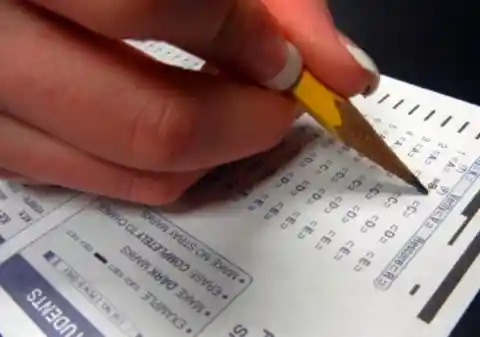
Jennifer said in an interview that she understood, but that the non-disclosure form was still troubling. And before Jennifer knew it, her daughter’s speech was everywhere.
The video of Sydney’s passionate speech quickly spread on social media, and a link to the video was even included in a feature piece for the Tampa Bay Times. Soon, Jennifer couldn’t keep up with all the interview requests from blog sites, newspapers, and even television and radio stations.
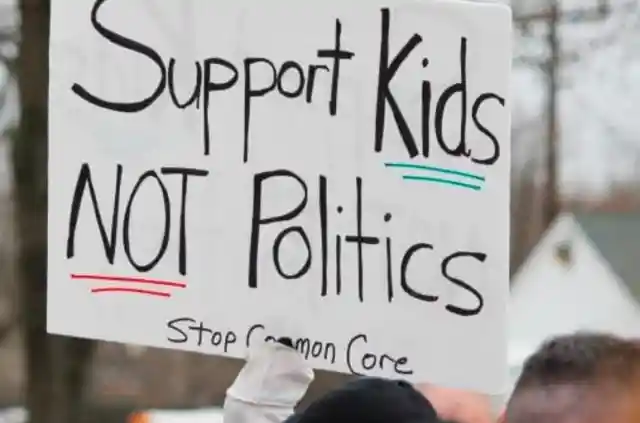
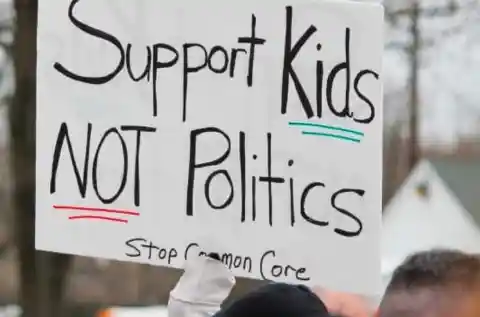
But what is it about Common Core and the Florida Standards Assessment that has parents in an uproar?
The Florida Standards Assessment is a hot-button issue embroiled in a statewide debate - and it goes hand-in-hand with Common Core. Many people agree with the points Sydney brought up in her speech - including her own mom. Opponents of the FSA say the new system was rushed into place before it was proven to be a valid method of assessing students.


With no meaningful data on whether the test was viable, why hadn’t the state Department of Education taken a one-year break from grading schools? And that’s not the only problem.
Another issue with the Florida Standards Assessment is the fear and anxiety it instills in students. The first wave of Common Core testing, developed by Pearson Inc., was met with outrage about its length, appropriateness, and difficulty. Most students felt stressed and unprepared - reacting to the test with anger, tears, anxiety, and shock.


The reaction to the test was so extreme that administrators everywhere requested guidelines for how to handle test papers that had been thrown up on. And the controversy only grew.
The Common Core curriculum has grown extremely controversial in recent years, with schools gradually moving away from it. In Florida, new math, English, and literacy standards were adopted that were considerably higher than previous standards. Common Core, unlike previous curriculums, was touted to better prepare students for a career or higher education.
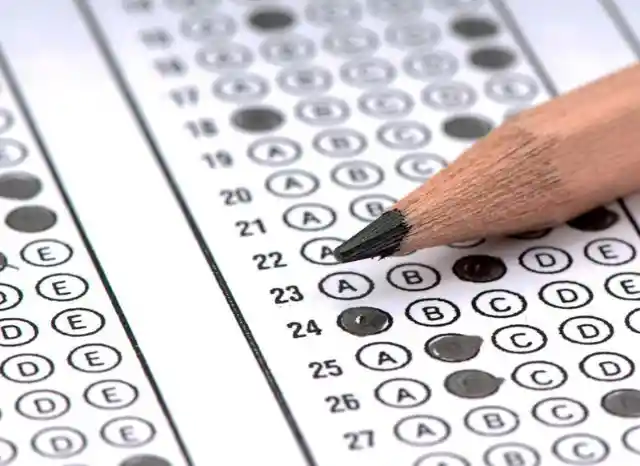
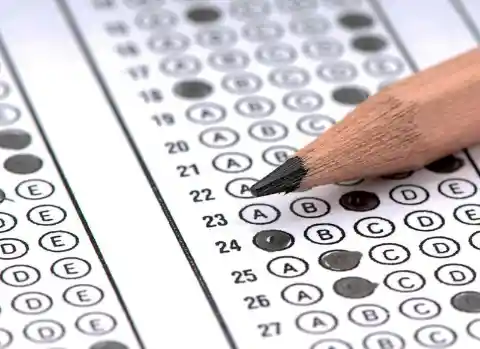
However, parents and teachers immediately spotted problems with it.
Common Core was reverse-engineered to teach the skills needed to find a job, and it was spearheaded by billionaire CEOs and corporations (including Bill Gates). There’s some suspicion that Big Business has an ulterior motive for getting involved with the educational system.


And the conclusion reached by many parents, students, and teachers is a lot darker than you may think.
According to the information page for a Facebook group called “Stop Common Core in California’s Central Valley,” “Public schools are ripe for takeover. If corporations can control the content, they can use our free tax dollars for their profit.


Schools will manufacture students to become obedient workers rather than free thinkers.” The fact that the top educators in the country were not consulted while Common Core was being developed also tells us something.
Supporters of Common Core believed that it was a much-needed educational reform that would eliminate equality disparities and improve educational standards on a national level, opposers saw it differently. To opposers, Common Core is an infringement on a state’s right to control their own curriculum.
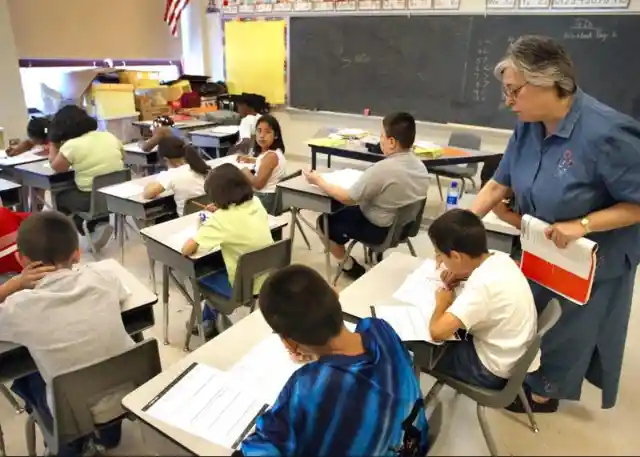
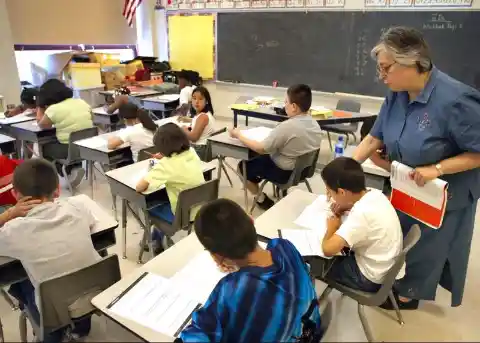
Parents, students, and teachers have come out in droves to point out that Common Core was never developed with democracy in mind and had very little input from educators when it was being developed.
Opponents of Common Core believe that the uniform set of state standards promotes a “one-size fits all” approach to education. Teachers who disagree with Common Core understand that children learn in different ways and adapt their teaching according to the individual student’s needs. Common Core, on the other hand, forces individuals to conform to its standards.
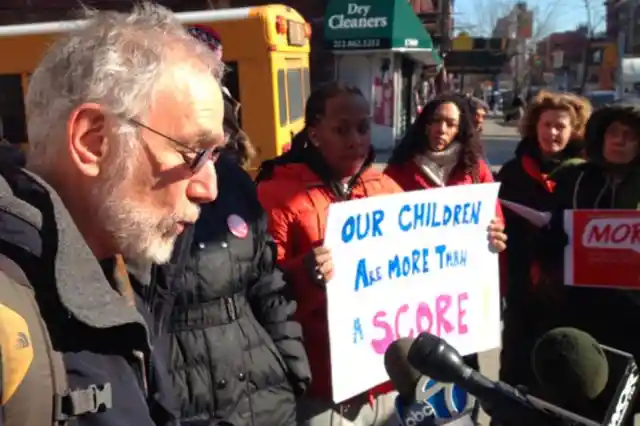
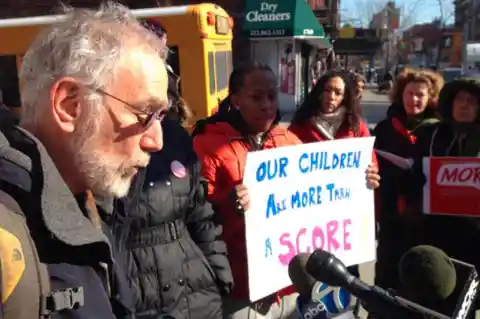
But that’s not all.
While supporters insist that Common Core is not a curriculum but rather a set of standards and goals, some experienced educators proclaim otherwise. Common Core state standards finely detail exactly what is taught when grade-by grade, as well as how it is taught. Some say that Common Core was a sneaky way to get around the legal barriers that prohibit a nationwide federally-enforced curriculum.


Common Core also takes the teaching power away from teachers.
Teachers are being held increasingly accountable for the test results of their students.


Teachers are also being partially evaluated on the performance of their students’ performance on standardized tests - which place the most weight on Common Core skills. Afraid to be negatively evaluated, teachers have resorted to teaching their students how to parrot the answers to test questions instead of developing an understanding of the topic as a whole.
While standardized testing has been the backbone of the American educational system for more than a century, students like Sydney, teachers, and parents have had a problem with it. As Sydney pointed out, standardized testing reduces an individual to a number and takes away their free-thinking. And the “new” Florida Standards Test is just Common Core with a new label.


And, as we all know, Common Core has been controversial from the beginning.
The first Common Core tests were developed by the corporation Pearson Inc. and adopted by state school districts in 2010.


They even included corporate promotional material and logos on the test pages. By early 2014 - after Sydney and others took a stand - Common Core faced such severe backlash from the public that it was was repealed in many states.
Jennifer looked over the footage of her daughter and read what the news outlets were saying. “How is a 4th grader more insightful than the people who are in charge of her education?


And why was she punished for pointing out a crucial flaw in the system?” Jennifer leaned back with a huge smile. Her daughter truly was special.